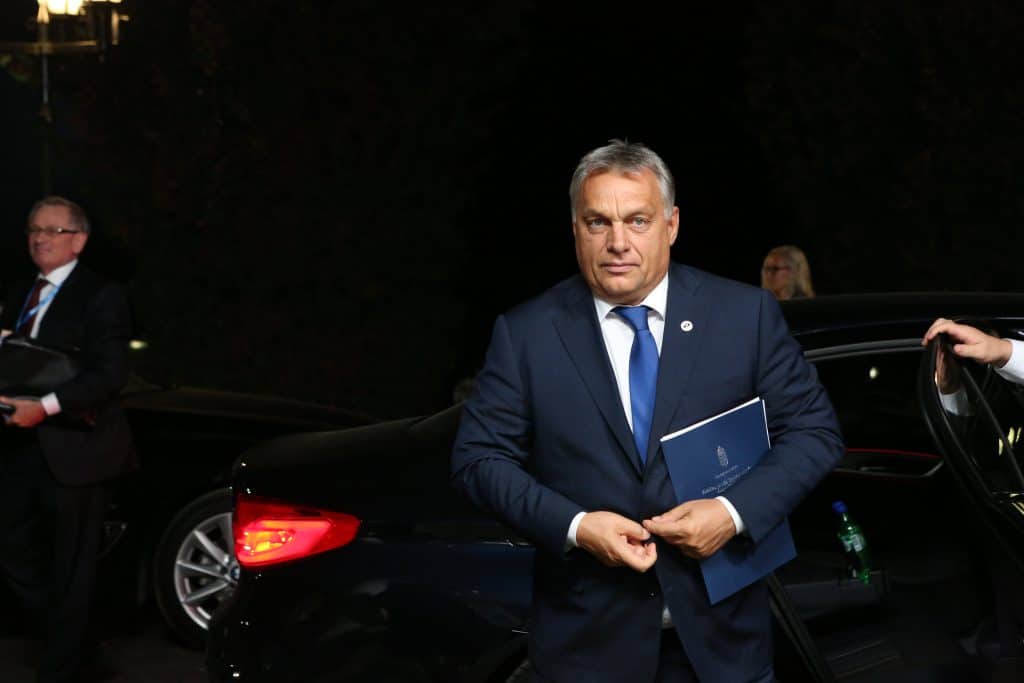Orbán in 2017 (Flickr)
Pro-European, democratic parties in Eastern Europe are suffering a setback after autocratic incumbents in both Hungary and Serbia won major electoral victories. Parliamentary elections were held in both countries on Sunday 3 April. In addition, presidential and local elections also took place in Serbia. The elections were characterised by an uneven playing field between the rulers Orbán (Hungary) and Vučić (Serbia), and the opposition. In both countries, the opposition was united but failed to achieve any successes.
Hungary
In Hungary, incumbent prime minister Viktor Orbán won a convincing majority with his Fidesz party. His party won 53% of the votes, a big difference from the opposition, which won 35% of the votes. He can continue to govern in the current set-up, and has even won a two-thirds 'super majority' in parliament. This gives Orbán far-reaching powers to further encapsulate and demolish the country's political institutions. He is also expected to want to give more power to loyal industries in Hungary's domestic economy. Hungary, the EU's only "partial democracy" in the Freedom House Index, will thereby drift even further away from the Union's democratic values.
The united Hungarian opposition, led by centre-right prime ministerial candidate Péter Márki-Zay, could not make a fist against Orbán. The Fidesz party completely controls the media landscape. Whereas Orbán can be seen several times daily on national channels, Márki-Zay only got the legally required five minutes of airtime once. Because Fidesz has redistributed the constituencies to its own advantage, the opposition needs 3% to 5% more votes to gain a majority in parliament.
The European Commission has now launched a procedure that could stop European subsidies to Hungary. Hungary receives large amounts of European funds, and the hope is that this will move Orbán to return to the path towards democracy. For now, he seems to care little about a threat from Brussels. At his victory speech, he said, "our victory is so great that you can see it from the moon, and especially from Brussels."
Serbia
The situation in Serbia is not much better. President Vučić won a very large victory over united opposition candidate Zdravko Ponoš (60% to 19%). The opposition, having not participated in the previous 2020 parliamentary elections, hoped to force Vučić into a second round and regain seats in parliament. This happened only marginally, and Vučić can continue to rule unchallenged.
Free elections cannot be spoken of in Serbia either. The media landscape and several political institutions are in the hands of Vučić and his SNS party. Several irregularities have also been reported in the electoral process. Observers were not allowed to enter polling sites and intimidation took place around polling booths. Also, the president of opposition party PSG was attacked outside a polling location by SNS party members.
Repercussions for the regions shaky geopolitical situation
As Russia's invasion of Ukraine rages on, there were high hopes that the elections in Hungary and Serbia would produce a more democratic, and pro-European course. Yet, especially in Serbia, the big win for Vučić was already expected. The resigned victories of Orbán and Vučić only seem to give more reason for both rulers to continue the current course.
Both countries were close allies of the Kremlin before the war, and are now in a split on sanctions, arms supplies and condemning the Russian invasion. Both Hungary and Serbia are highly dependent on Russian energy supplies.
In addition, the EU's eyes are on the Western Balkans. A number of countries are waiting wistfully to join the EU. Serbia, too, has long wanted to join the Union. However, negotiations in many cases have not yet started or have come to a complete standstill. The influence of Serbia and Hungary in the region is strong - and a further return to authoritarian politics will only make EU entry more unlikely. Currently, concerns are very high about Bosnia, where Orbán-style Serbian entity president Milorad Dodik is taking over politics and pushing the country into great instability.
It is crucial to halt autocratic tendencies in the region. Right now, the Russian military threat demands European unity. Other countries in Eastern Europe and the Western Balkans see the importance of regional democratic cooperation for collective security. Curtailing subsidies to bring Serbia and Hungary back on the democratic path is a first step to bring this about.
Sources: Radio Free Europe GMF Euronews I Euronews II Wed Politico Reuters Radio Free Europe I Radio Free Europe II Balkan Insight I BBC Balkan Insight II




